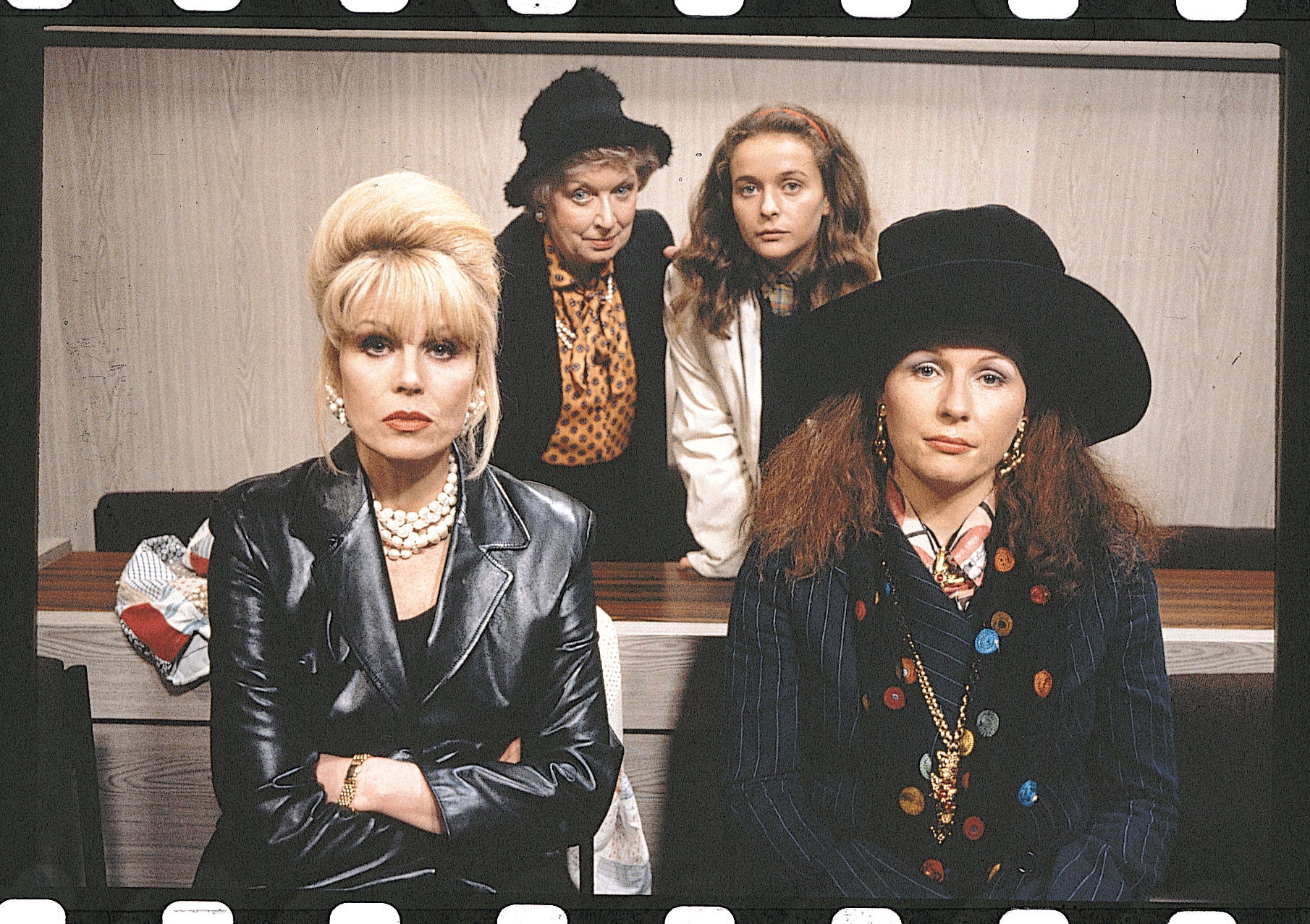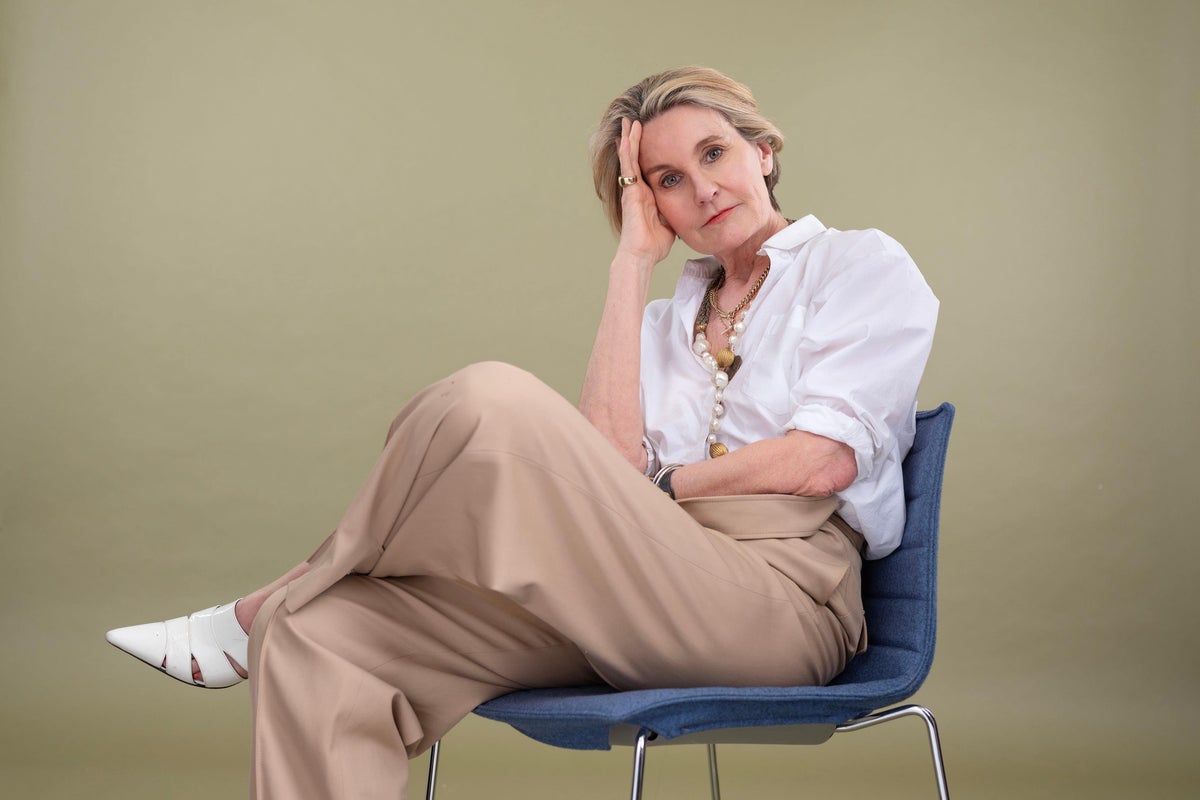From Linda Evangelista being shot for Vogue in the windows of Harvey Nichols to the shop becoming known worldwide courtesy of a cameo role in Absolutely Fabulous, the Nineties were an unforgettable decade for me. And as a new spirit of optimism, experimentation and creativity surged, I was at the heart of it.
I was 28 when I arrived at Harvey Nichols in 1989, leaving my job at Top Shop – the home of high street fashion and accessible price points – to head up display at a luxury department store. Trouble was, while boutiques and the high street were booming, department stores were struggling to find their identity. One newspaper had even declared they were “dead”. But over the next eight years, I was part of a team that transformed Harvey Nichols into a destination. And amid the freedom of the Nineties, we used imagination, risk and innovation to do it.
Harvey Nichols’ huge Knightsbridge windows were filled with everything from a Thomas Heatherwick sculpture to Admiral Lord Nelson wearing Westwood. We championed up-and-coming British fashion talent with the first New Gen fashion show, collaborated with the Royal Court theatre, launched Harvey Nichols in Leeds and sent Naomi Campbell down the catwalk in a T-shirt with “Fash Mag Slag” emblazoned across it. Plus, of course, I agreed to let Edina and Patsy shop with us. By the time I left in 1997, the store was packed with twentysomethings on the hunt for everything from Mac lipsticks to Moschino.
Three decades on, I can look back on that time and cherish all the many positives. It was an optimistic, daring and energising period. In fashion, the old guard gave way to a new breed of designers including Versace, Westwood and Tom Ford at Gucci. Young British talent, including Alexander McQueen and Hussein Chalayan, were on the rise, rave culture was at its peak, Britpop was ruling the charts, and of course New Labour swept to power on a wave of optimism.
But there were compromises too. In retail and fashion, for instance, bullying and humiliation were a frequent part of the accepted – and very male – power structure. And as a woman, you didn’t have anywhere to go with it, or anyone to speak to. So the choice was simple: wear an armour of steel, or bat it all off with your eyelashes. After the births of my two children, I was paid £52.50 a week maternity pay and took just three months off. Between board meetings that went into the night and networking with fashion types who picked at egg white omelettes to get into the latest bodycon dress, I felt almost embarrassed at being a mother. And even though I’d been promoted to the Harvey Nichols board, it didn’t stop a photographer from slapping my arse when I bent down at a fashion shoot.
Within a few years, working mothers would be immortalised in I Don’t Know How She Does It. My method of surviving the juggle was a bit less comedic: ruthless time management, a great nanny and a thick skin. I also almost unconsciously twisted myself into the shape that the alpha male work culture around me demanded: competitive, status-driven and high-performance.
After eight years at Harvey Nichols, I left to start my own business, and almost three decades on, I can understand why Gen Z are so fascinated by the Nineties right now. In a world without smartphones and the internet, for instance, you could make mistakes without fear of it going viral on social media. The financial landscape now is also incredibly tough for young people. Even though I had absolutely no back-up when I started out, for instance – because my parents had died when I was a teenager – I could still afford rent in London, which lots of kids just can’t these days.
And although being a working-class woman surrounded by privately educated men made me feel insecure at times, I also had the chance to move upwards because I didn’t ever feel that someone was making space for me. I believed that if I worked hard, I would create it, and I did. But that kind of optimism is tough today when the job market is so competitive and the cost of living so high.

open image in gallery
Portas (pictured second left in 1997) helped establish Harvey Nichols as one of the prestige names in UK retail (PA)
Crucially, the Nineties was also the decade that sparked the consumerist boom, which has wreaked so much havoc on us socially and environmentally. In the late 1980s, Barbara Kruger had very presciently produced her critique of consumerist culture – the iconic artwork I Shop Therefore I Am – which inspired the title of my new book. But as that whole movement sped up even further during the heady Nineties, none of us stopped to consider where it might all end up, caught up in the never-ending forward momentum. We can see now that rampant consumerism isn’t the answer, and I am certainly far more careful today than I ever was back then about my purchasing decisions. I’ve had many of my most cherished – and worn – clothes for years now, and I’m proud of the work I’ve done with Save the Children on the Mary’s Living & Giving charity shops, which are all about pre-loved.
There are key generational differences, of course. I’m a member of Generation Jones, who cusped baby boomers and Generation X, and while I certainly feel very culturally different to both of them, all of us are worlds away from Gen Z. We put up with incredibly bad behaviour and just stuck things out, and it’s good that young people today are far less forgiving of all that.
But they also often have very different expectations about eating out, taking holidays, going for a coffee in a posh café instead of the Wimpy bar. That’s all part of the consumerist ethos of “I want it now, how I want it” and something has to change for the future.

open image in gallery
Portas embraced the era of ‘Absolutely Fabulous’ by inviting Edina and Patsy to shop at Harvey Nicks (BBC)
But I also see a lot of reasons to hope. Gen Z is a really switched-on, compassionate generation. For every young person who loves fast fashion, there’s another who is constantly buying second hand. And I’m hopeful they will start to redefine how we work and live because right now it feels as if things can’t continue as they are. Call it wishful thinking, but I’ve always believed that hope is generative: you have to believe in it to create it.
And while we know that humanity has the ability to do such dreadful things, I also think there are inexhaustible ideas, kindness and generosity that will finally win. Through my work as co-chair of the Better Business Act, and with independent retailers, I see so much energy at the grassroots level. In every community, in every field, there are people rising to the best of their capacities. The Nineties were incredible, creativity was core, and that’s what both business and politics need more of today to rewrite the rules.
In many ways, I’m the same now as I was back then: I still love disruption, have a very low boredom threshold and remain excited about ideas, and working out the future direction of cultural travel. People keep asking me when I’ll retire, but I can’t imagine giving up work. On the other hand, I’m also a very different person: older, wiser, calmer, softer. Or at least that’s what I tell myself.
Isn’t that the key, though? Take inspiration from the past, but never forget to keep evolving.
‘I Shop, Therefore I Am’ by Mary Portas is available now (Canongate £20)

